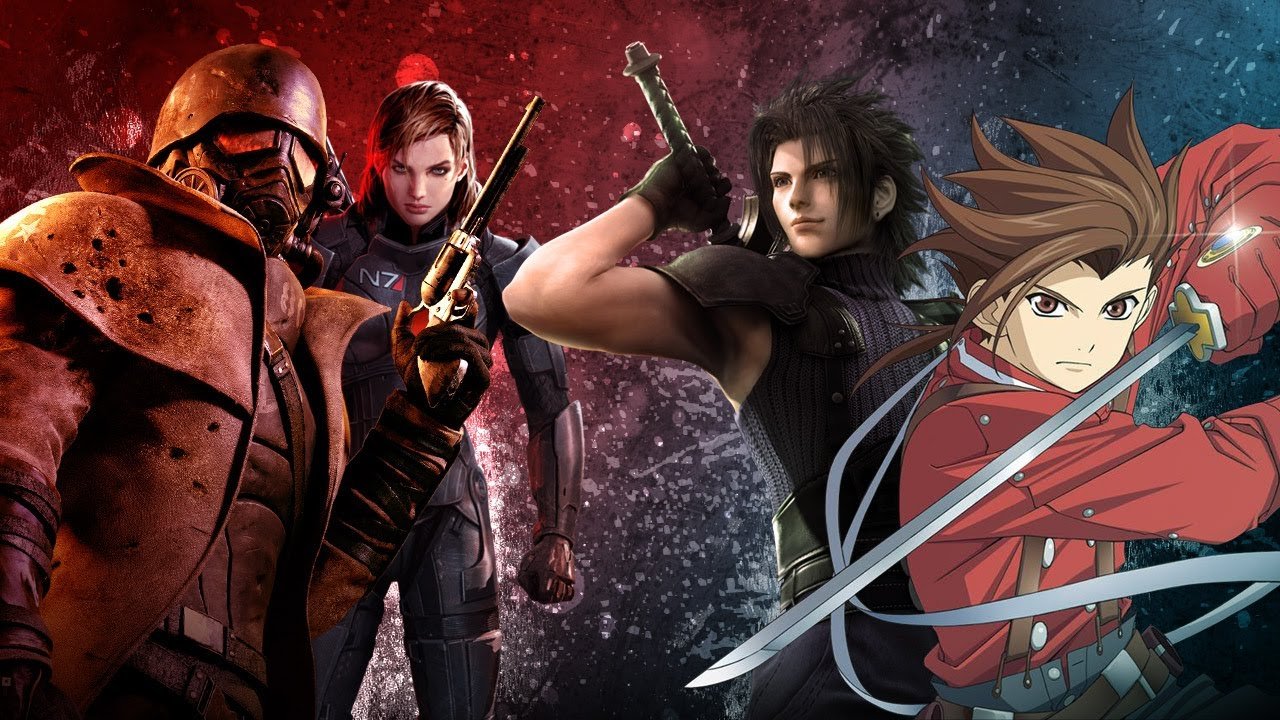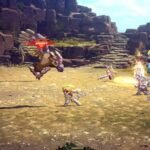Are you a fan of role playing games? If so, you’re likely familiar with the differences between Japanese role playing games versus western role playing games (WRPGs). From the way stories are told to the way characters develop, each type of RPG offers its own unique set of features. But which type of game offers the ultimate gaming experience? In this article, we’ll compare JRPGs and WRPGs in terms of storytelling and plot structure, character development, combat mechanics, and appeal to gamers. By the end, you’ll have a better understanding of which type of RPG deserves your time and attention.
Get WRPG and JRPG Deals: 2Game Summer Sale 2023 – Fanatical Red Hot Sale 2023 – Steam Summer Sale 2023 – PlayAsia Summer Sale 2023 – Green Man Gaming Sizzling Sale 2023
Japanese Role Playing Games Versus Western Role Playing Games
Overview of JRPGs and WRPGs
You may be aware that JRPGs and WRPGs differ greatly in style and gameplay, but the core elements of each are rooted in the same RPG foundations. JRPGs are known for their stories, often involving a large cast of characters and complex storylines. They also feature turn-based combat, with players controlling a customizable party of characters. WRPGs, on the other hand, are more focused on providing an open world with a great deal of exploration. WRPGs tend to be more action-oriented, with players engaging in real-time battles, often with customizable party members.
Both JRPGs and WRPGs also feature some form of character progression, allowing players to increase their characters’ stats and abilities. However, the way in which players can customize their party and progress their characters varies greatly between the two styles. JRPGs also tend to have a more linear progression, while WRPGs often allow players to choose their own paths.
Ultimately, both JRPGs and WRPGs provide a unique and engaging experience. Their differences in style and gameplay create an interesting dynamic that serves to provide a wide variety of experiences for players to enjoy. With their shared RPG foundations, both JRPGs and WRPGs offer something different, but equally enjoyable, for players of all kinds.
Storytelling and Plot Structure
Discover how different storytelling and plot structure can be between two types of RPGs! Japanese Role Playing Games (JRPGs) and Western Role Playing Games (WRPGs) both offer engaging stories and compelling characters, but they differ in how they structure their narratives and their approach to team building and dialogue choices. JRPGs tend to focus on world building, often featuring complex, interweaving storylines within expansive worlds.
They often have a linear plot structure, with strong emphasis on morality choices and a central protagonist. WRPGs, on the other hand, are less concerned with world building and more focused on team building. They often use a non-linear plot structure, with more dialogue choices and multiple endings. They also tend to be more focused on the individual’s experience, with the characters and story being tailored to the player’s choices and playstyle. As a result, the stories in WRPGs are often more personal and immersive.
No matter which type of RPG you prefer, the choices you make will shape the story and the world you inhabit. From grand tales of heroism to smaller stories of self-discovery, there is something for everyone in the world of RPGs. Whether you choose to explore the expansive worlds of JRPGs or dive into the more personal stories of WRPGs, the journey is yours to take.
Character Development
No matter which type of RPG you choose, the characters you meet will shape your experience and provide you with a unique journey. Japanese role playing games (JRPGs) and western role playing games (WRPGs) both boast characters that are incredibly detailed and provide the player with the opportunity to explore different personalities and relationships. However, the way in which these characters are developed differs between each type of game.
JRPGs typically focus on characters that have a predetermined story arc, with Artificial Intelligence (AI) and character depth being the main priorities. Characters in these RPGs are often fully developed and have a predetermined narrative that players must follow. Players are given choices that can affect the outcome of the game and the relationships between characters, but ultimately these choices do not significantly alter the overall storyline.
WRPGs, on the other hand, focus on creating characters with depth and complexity. Characters in these RPGs are often customizable, with players having the freedom to make narrative choices that significantly affect the outcome of the game. These choices often require the player to make difficult decisions that will determine the outcome of the game and the relationships between characters.
Overall, both JRPGs and WRPGs provide players with a unique experience through their character development. While JRPGs focus on creating characters with predetermined story arcs, WRPGs focus on creating characters with depth and complexity that can be altered through narrative choices. Regardless, both types of RPGs offer players the chance to explore and experience different personalities and relationships.
Combat Mechanics
Combat mechanics are an important part of role playing games, and there are two main approaches: turn-based and real-time. In turn-based combat, players take turns making moves or taking actions, while in real-time, both players and enemies act simultaneously. Player control and strategy also come into play, as the player must decide which actions to take and how to best use their resources to succeed in battle.
Turn-Based vs. Real-Time Combat
Turn-based combat allows for more strategic depth than real-time combat, so you can really immerse yourself in the game. Japanese Role Playing Games (JRPGs) often utilize turn-based combat while Western Role Playing Games (WRPGs) employ real-time combat. Turn-based combat provides the opportunity for statistical analysis, allowing the player to plan and strategize their moves. Furthermore, the turn-based system gives the player a greater sense of world-building, allowing them to make decisions based on their own understanding of the game world.
On the other hand, real-time combat is faster-paced and more action-oriented. The player must make decisions quickly and react to their opponents’ moves. WRPGs focus more on immersion mechanics, allowing the player to feel the intensity of the game. Ultimately, both combat systems have their own advantages and disadvantages and can be used to create unique, enjoyable gaming experiences.
Player Control and Strategy
Strategizing your moves is key to success in both turn-based and real-time combat, allowing players to take full control of the game. Japanese role playing games typically feature non-linear play, making player decisions more impactful and relying on resource management. Western RPGs tend to be more linear, giving players fewer choices and sometimes reducing control of the game. However, both styles of RPGs have strategies and tactics that are crucial for success.
Both styles require players to plan ahead and consider how to best use their resources, such as inventory, health, and magic. Western RPGs often have more focus on action and combat, while Japanese RPGs tend to have an emphasis on story and world exploration. Both styles require players to plan and strategize to achieve victory.
Appeal to Gamers
Japanese and western role playing games offer distinct appeals to gamers, with each featuring unique elements that draw in players. Character customization, art style, and world design are all key factors that set Japanese and western RPGs apart. For many, the aesthetic of Japanese RPGs is a major draw, with their signature art style being distinct and eye-catching.
Japanese RPGs often offer detailed customization options, allowing players to tailor their character’s appearance and abilities to their liking. On the other hand, western RPGs tend to focus more on world design, including complex stories, expansive landscapes, and intricate characters.
The difficulty of both types of role playing games can also affect the appeal they have to gamers. Japanese RPGs often have more linear stories with less challenging gameplay, while western RPGs often require more strategy and tactical thinking. This can make them better suited for experienced gamers, but also more intimidating for newcomers. Similarly, the time investment required for either type of RPG can be a factor in its appeal. Japanese RPGs often have shorter playthroughs, while western RPGs tend to have longer and more complex stories.
The appeal of RPGs to gamers comes down to personal preference, as both Japanese and western games have their own unique strengths and weaknesses. Players looking for a detailed and customizable experience may prefer Japanese RPGs, while those looking for a longer and more challenging adventure may opt for a western RPG. Ultimately, the best RPG experience is the one that best fits each individual’s gaming style.




